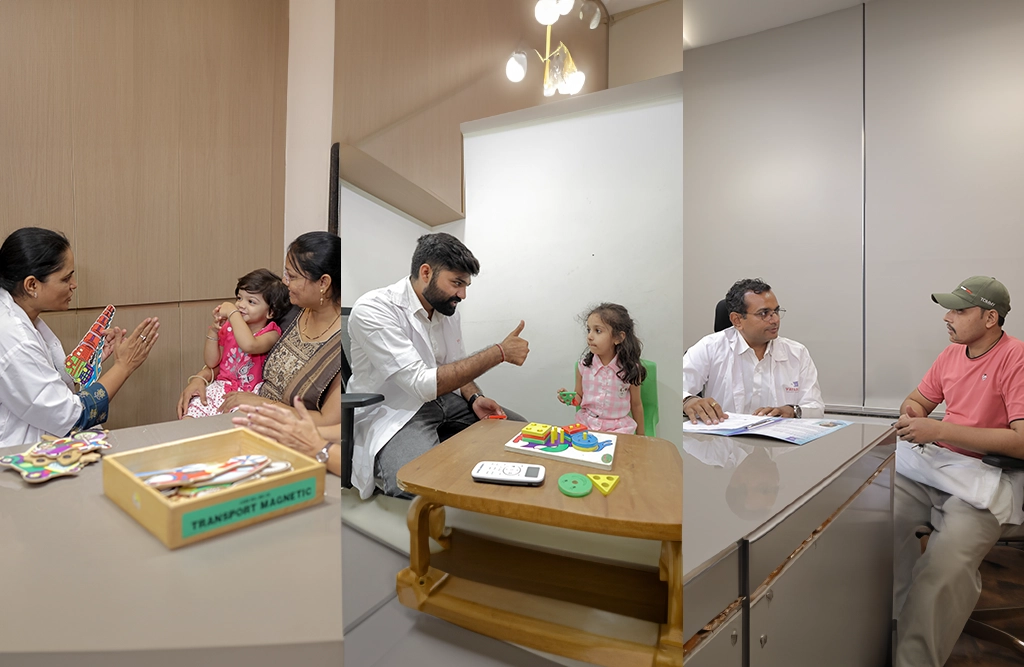
When it comes to talking and understanding words, sometimes we need a little extra help. That’s where speech and language assessment and therapy come in. First, experts check how well you’re talking and understanding words. They might ask you to say certain sounds or words and see how you’re doing. Then, if you need it, they’ll give you therapy to help improve your speech and language skills. It’s like going to a coach to get better at sports, but instead, you’re getting help with talking and understanding. The goal is to make sure you’re able to communicate well and feel confident in expressing yourself.
Misarticulation happens when someone has trouble pronouncing certain sounds correctly, which can affect how clear their speech is. It’s like stumbling over words or having trouble making certain sounds come out right when talking.
Stuttering, or stammering, is when someone has difficulty speaking fluently, often repeating sounds or words or getting stuck on certain sounds.
Cluttering is when someone speaks quickly and unclearly, often blending words together or skipping sounds, making it hard for others to understand them. It’s like trying to follow a fast-talking person without catching every word.
Delayed speech and language development can happen for various reasons. It might be because of intellectual disabilities, trouble hearing, conditions like autism, or ADHD.
Cerebral palsy is a condition that affects movement and muscle coordination due to problems in the brain, often from birth.
A learning disability is a condition that affects the way someone learns new things, making it harder for them to understand or process information compared to others. It doesn’t mean they can’t learn, just that they may need extra help or different ways of learning to succeed.
Cleft lip and palate are birth defects where a baby’s lip or mouth doesn’t form properly during pregnancy, causing a split or gap. It can affect eating, speaking, and facial appearance, but with treatment, many children can live healthy lives.
Auditory verbal therapy for cochlear implants is like a special training program that helps people learn to understand and use sounds better after getting a cochlear implant. It’s like having a coach who helps you get the most out of your new hearing device so you can communicate more easily.
Adult neurogenic communication disorders are issues with speaking, understanding, reading, or writing that happen after a brain injury or illness. It’s like having trouble with communication skills after something happens to your brain, like a stroke or brain injury.
Aphasia is a condition that affects a person’s ability to communicate, making it difficult to understand or use language, often caused by brain injury or stroke.
Dysarthria is a condition where someone has difficulty speaking clearly because the muscles they use for speech are weak or uncoordinated. This can make their words sound slurred or hard to understand.
Apraxia is a speech disorder where a person has difficulty planning and coordinating the movements needed to produce speech sounds, making it hard for them to speak clearly.
Voice disorders can affect how your voice sounds or how well you can speak. They can make your voice sound hoarse, weak, or shaky, and they might make it hard to talk or sing like you normally would.